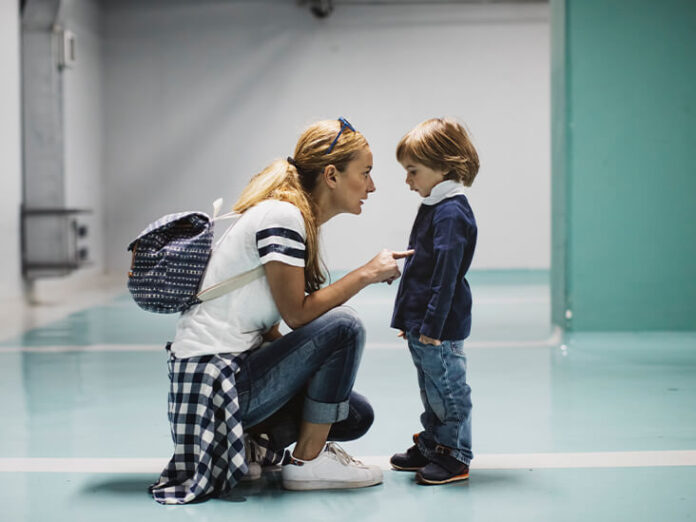The parent-child relationship is one of many intricacies. Many factors play into determining parenting style as well as the impacts that particular parenting styles have on children.
When children grow up with parents who employ unhealthy parenting styles, these children may grow up to be adults afflicted with anxiety disorders, depression, and other forms of mental illness.
Disorganized attachment, a phenomenon in which a child is both attached to and fearful of a caregiver, is one such result that can cause consequences of its own.
This article will work to explain what disorganized attachment is and explore what implications it may have on mental health. It is important to remember that if you are struggling to maintain a healthy degree of mental wellness, it may be necessary to seek outside help.
Reading mental health articles, talking with friends, and engaging in therapy sessions with a licensed mental health professional are all great ways to regain complete control of your life.
Definition of Disorganized Attachment
Disorganized attachment describes situations in which the failure of a parent or caregiver to act as a child’s protector consistently produces a complicated, and oftentimes toxic, relationship.
Instead of promoting a typical parent-child bond, the caregiver functions as a source of anxiety and fear while performing the caregiving duties.
During the early stages of development, babies learn ways to deal with emotions based upon how caregivers respond to the distress of the child. This process starts during infancy and continues throughout the rest of childhood development.
Typically, when a child is in distress, caregivers will attempt to calm them by performing various rituals such as touching the child, holding the child, and speaking in a soft voice. However, other caregivers who are more prone to anger and frustration may deal with the child’s distress by withholding comforting actions or treating the child inappropriately.
This type of caregiver may actually yell or physically harm the child out of frustration, leading to the development of disorganized attachment.
Caregivers can also cultivate the development of disorganized attachment when they outwardly project fear when a child is in distress. In this case, the caregiver is not acting as a protective force for the child but rather as a source of anxiety and worry.
The Impact of Disorganized Attachment
When children grow up with caregivers who cannot properly manage emotions or parent mindfully, psychological problems may, and often do, ensue.
Disorganized attachment is usually the direct product of unresolved fears. The fears that children of inappropriate caregivers manifest are typically derived from abuse or the caregiver’s emotional detachment from the child. Abuse can come in different forms, including physical abuse, mental abuse, emotional abuse, and sexual abuse.
Children, especially young children, rely on their parents for protection, but when the caregiver both provides protection and harms the child, there is role confusion. The child may grow up with a mistrust of people, leading to the inability to form healthy, normal relationships with others.
Adults who suffer from disorganized attachment experience issues in several ways. The following points serve as a short list of some potential problems:
- Trouble confiding in other people
- Trust issues
- Stress management issues
- Quick, uncontrollable changes in mental state
- Subpar people skills
- Trouble meeting new people and making friends
- Emotional detachment
- Inability to hold a job
- Issues maintaining relationships with others
- Lack of personal boundaries
- Erratic and unpredictable behavior
- Problems dealing with memories and emotions
These can be detrimental to daily life as an adult. Because of these symptoms, adults with disorganized attachment may feel alienated from society and live lonely existences. This can be extremely difficult to bear, and professional mental health may be necessary.
How to Manage Disorganized Attachment Symptoms
Thanks to technological advances, in-office therapy sessions are no longer the only option for addressing concerns related to mental health, including those outlined above.
Now, prospective patients can choose to engage in virtual therapy with online therapists (in place of or in addition to traditional in-person therapy).
Online therapy provides patients with a host of benefits. With the ability to meet with qualified therapists from the comfort of your own home and at a lower cost than in-office therapy, there are more tools than ever to take advantage of.
There’s never a valid reason for any individual to have to suffer through mental health issues alone, even if you’ve been treated that way in the past by loved ones. The first step toward change and recovery is often acknowledging where your emotions might come from; from there, you can choose what treatment option is best for your situation.
Author Bio: Marie Miguel Biography

Marie Miguel has been a writing and research expert for nearly a decade, covering a variety of health- related topics. Currently, she is contributing to the expansion and growth of a free online mental health resource with MyTherapist.com. With an interest and dedication to addressing stigmas associated with mental health, she continues to specifically target subjects related to anxiety and depression.












